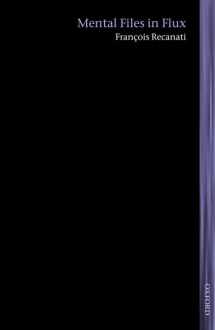
Mental Files in Flux (Lines of Thought)
Book details
Summary
Description
François Recanati has pioneered the 'mental file' framework for thinking about concepts and how we refer to the world in thought and language.
Mental files are based on 'epistemically rewarding' relations to objects in the environment. Standing in such relations to objects puts the subject in a position to gain information regarding them. The information thus gained goes into the file based on the relevant relation. Files do not merely store information about objects, however, they refer to them and serve as singular terms in the language of thought, with a relational (nondescriptivist) semantics. In this framework, the reference of linguistic expressions is inherited from that of the files we associate with them. Crucially, files also play the role of 'modes of presentation'. They are used to account for cognitive significance phenomena illustrated by so-called 'Frege cases'.
In this new volume, Recanati considers what happens to mental files in a dynamic setting. Mental files are construed as both continuants (dynamic files) and as time-slices thereof (static files). Dynamic files are needed to account for confusion, recognition and tracking. Mental Files in Flux considers what happens to the relation of coreference de jure, central to the functional characterization of files, when one adopts a dynamic perspective. Only a weak form of coreference de jure is said to hold between stages of the same dynamic file. The second part of the book argues that communication involves interpersonal dynamic files. Special attention is paid to the communication of indexical thoughts (de se contents) and communication using proper names.


We would LOVE it if you could help us and other readers by reviewing the book
Book review



